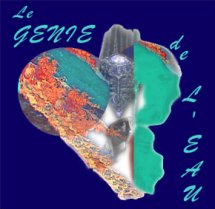

|
The Mirror that Changes
" The Mirror That Changes " " …. as the mirror changes with the color of its subject, so [water] alters with the nature of the place... In time, and with water, everything changes ". Leonardo Da Vinci Annette Weintraub's work is an investigation of architecture as visual language. Recent projects for the Web have focused on the dynamics of urban space, and on the intrusion of media (in words, symbols and moving images) into public space. Her work also examines the shifting boundaries of personal and private space and the associative capacity of landscape. While these projects explore the visual vocabulary of architecture, there is also an underlying investigation of the cultural and social meanings of the architectural landscape. Weintraub's recent work has explored narrative structures that incorporate simultaneous multiple narratives in image, text and audio within a spatial construct that functions as a narrative mapping of history, memory and information. These projects are part of a continuing body of work on spatialized narrative. The Mirror That Changes is an extension of that work from urban landscape to the natural environment. The Mirror is a project designed for the Web and kiosk that uses pairings of water use in domestic environments and in nature in layered segments of simultaneous audio, animated text and moving image. It integrates a large matrix of autonomous factoids and fictional threads which point to the connection between small scale actions and large scale effects. Commonplace uses of water in domestic environments (washing clothes, bathing, cooking) find parallel in the wider forces of nature (rain, ice and flood) and issues of water scarcity and sustainability. The Mirror That Changes is a Flash-based work designed around an interface of nine vertical segments contained in a single screen. Each vertical 'water line' acts as a container for several 'movies' which blend animated texts, video and voiceover and pairs a domestic use of water with some aspect of water in nature. The splash screen sets the stage with an extended animation, water sound and a voiceover quote from a text by Leonardo DaVinci. The Mirror That Changes… Water is sometimes sharp and sometimes strong, sometimes acid and sometimes bitter, sometimes sweet and sometimes thick or thin, sometimes it is seen bringing hurt or pestilence, sometime health-giving, sometimes poisonous. It suffers change into as many natures as are the different places through which it passes. And as the mirror changes with the color of its subject, so it alters with the nature of the place, becoming noisome, laxative, astringent, sulfurous, salty, incarnadined, mournful, red, yellow, green black, blue, greasy, fat, or slim. Sometimes it starts a conflagration, sometimes it extinguishes one; it warm and is cold, carries away or sets down, hollows or builds up, tears or establishes, fills or empties, raises itself or burrows down, speeds or is still, is the cause at times of life or death, or increase or privation, nourishes at times and at others does the contrary, at times has a tang, at times is without savor, sometimes submerging the valleys with great floods. In time and with water, everything changes. The main interface page opens automatically. Nine slices, or 'water lines,' play simultaneously against a mixed water sound. On clicking any of the 'water lines' it pushes the other 'lines' to the sides and opens to an animation and audio mix that is a blend of the domestic/nature water pairing. Mousing left or right within a slice, the viewer chooses either the domestic or nature movie, and the movie launches. Each 'movie' layers several narrative threads (fact and fiction) that bridge personal use and environmental impact of water usage. Since there are several animated texts onscreen while the video and audio threads play through, the viewer either picks up factual fragments of the onscreen texts in passing, or allows the movie repeat and reads through the texts fully. This interface integrates a vast quantity of information with a series of more intimate narratives, thus bringing a global problem down to a human scale. For this project, information was gathered on water use and sustainability in the areas of: access to safe drinking water, depletion of freshwater sources, water as a commodity, water pollution resulting from development and industry. Facts were organized based on the pairing structure, and collected in a spreadsheet. Extended fictional narratives were written from a perspective joining personal experience and water research, and incorporating the spreadsheet factoids. The Mirror That Changes uses the visual and aural qualities of moving water to create a languorous atmosphere in which overtly romantic and lyrical representations of water intersect with narratives introducing issues of scarcity, purity and equity. It presents a numbing quantity of information within an intimate format to bring intimate scale to a global problem. The Mirror is a meditation on the use of water and its limits. Its interwoven fragments of fictional narrative and fact link individual action and global consequence.The Mirror That Changes was commissioned by The Ruschlikon Centre for Global Dialogue.
http://www.virtualthemeworld.com/mirror
Biography of Annette Weintraub Les vidéos ci-dessous sont au format Quicktime. Vous pouvez télécharger le plug-in nécessaire à leur visualisation sur http://www.apple.com/quicktime/download/. Par souci de temps de téléchargement, nous vous proposons des liens vers chacune des vidéos et nous n'incluons dans la page que la dernière (elle est interactive; vous pouvez cliquer sur chacune des barres verticales, la vidéos va réagir). Si vous avez déjà le plug-in, il suffit de cliquer sur les différents liens à gauche de l'écran.
|
[an error occurred while processing this directive]